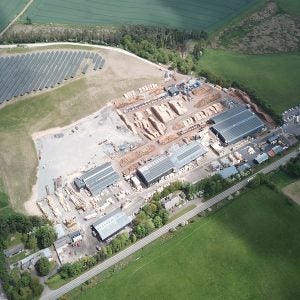The Canadian timber and forestry sectors signed a deal with green groups yesterday to balance environmental and commercial considerations that they believe will be “the envy of the world”.
The Canadian Boreal Forest Agreement (CBFA) applies to 72 million ha of public forest, an area twice the size of Germany, and is backed by 21 member companies of the Forest Products Association (FPAC) and nine green organisations, including Greenpeace.
FPAC members, which manage two-thirds of Canada’s certified forest, say the initiative commits them to the “highest environmental standards of forest management”. The deal involves suspension of new logging on 29 million ha, but guarantees “essential fibre supplies for uninterrupted mill operations”.
For their part, Greenpeace and fellow eco groups Canopy and ForestEthics have agreed to suspend their “Do Not Buy” campaigns targeted at the wood and forestry industries.
“The importance of this agreement cannot be overstated,” said FPAC chief executive Avrim Lazar. “Our member companies and their NGO counterparts have turned the old paradigm on its head. Together we have identified a more intelligent, productive way to manage economic and environmental challenges in boreal forests that will reassure global buyers of our products’ sustainability. It’s gratifying to see nearly a decade of industry transformation and hard work greening our operations is culminating in a process that will set a forestry standard that will be the envy of the world.”
Greenpeace Canada forest campaign co-ordinator Richard Brooks also welcomed the CBFA.
“This is our best chance to save woodland caribou, permanently protect vast areas of the boreal forest and put in place sustainable forestry practices,” he said.
The agreement covers:
• development and implementation of “world-leading forest management and harvesting practices”;
• completion of joint proposals for networks of protected areas and recovery of species at risk;
• a full life cycle approach to forest carbon management.






